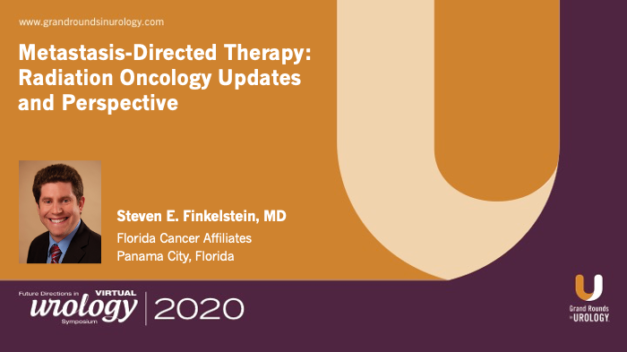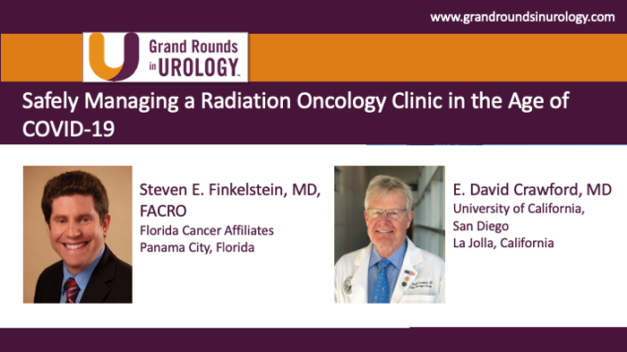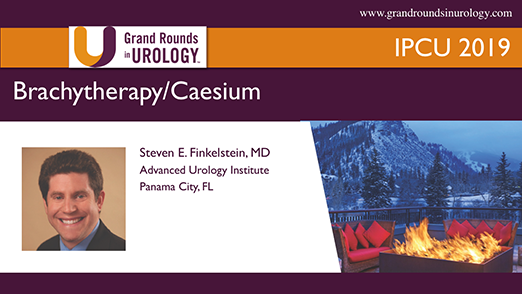Update on New Approaches Combining Brachytherapy with Immunotherapy
Steven E. Finkelstein, MD, FACRO, a radiation oncologist with Florida Cancer Affiliates in Panama City, Florida, discusses the process of combining brachytherapy with immunotherapy, highlighting the need for better applicators. He begins the presentation by describing radical prostatectomy, external beam radiation (EBRT), cryotherapy, and brachytherapy, and then reviews data on each of their relapse-free survival results. A trial found that when comparing EBRT with surgery against EBRT with brachytherapy, treatment with EBRT in combination with brachytherapy has a higher rate of PSA progression-free survival, and including ADT increases the rate even more. Dr. Finkelstein then considers the “cogwheels of cancer practice,” i.e., the idea that the combination of guidelines, management, bias, patient preference, marketing, reimbursement, payer, and task force systems sometimes takes more precedence in treatment choice than data. He goes on to describe brachytherapy in detail, noting that it uses precisely-delivered radiation sources to treat cancer within patients through small applicators that are unable to apply additional therapeutic agents. He cites this shortcoming as support for a need for applicators for additional therapeutic approaches. Dr. Finkelstein continues with a detailed overview of radiation-driven immunotherapy. He discusses a study showing that radiation can induce unique cellular expression of MHC Class I adhesion molecules, costimulatory molecules, heat shock proteins, inflammatory mediators, immunomodulatory cytokines, and death receptors. He concludes with a discussion of “Immuno-Site,” an applicator designed to provide simple, effective, and isolated localized radiation therapy, including brachytherapy and immunotherapy simultaneously.
Read More





